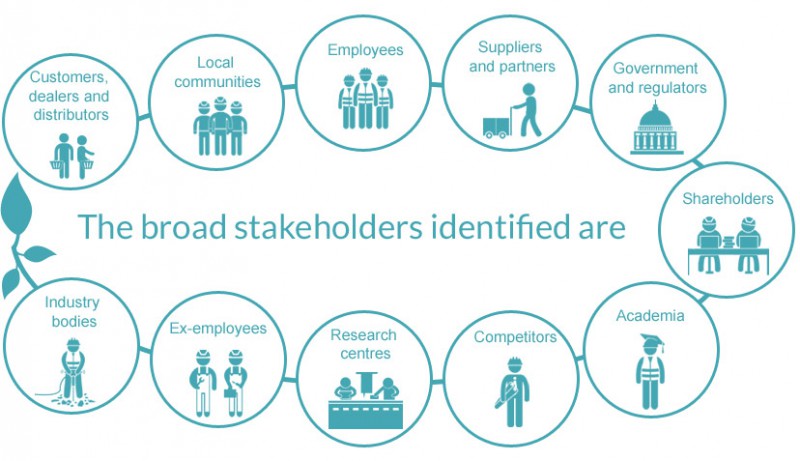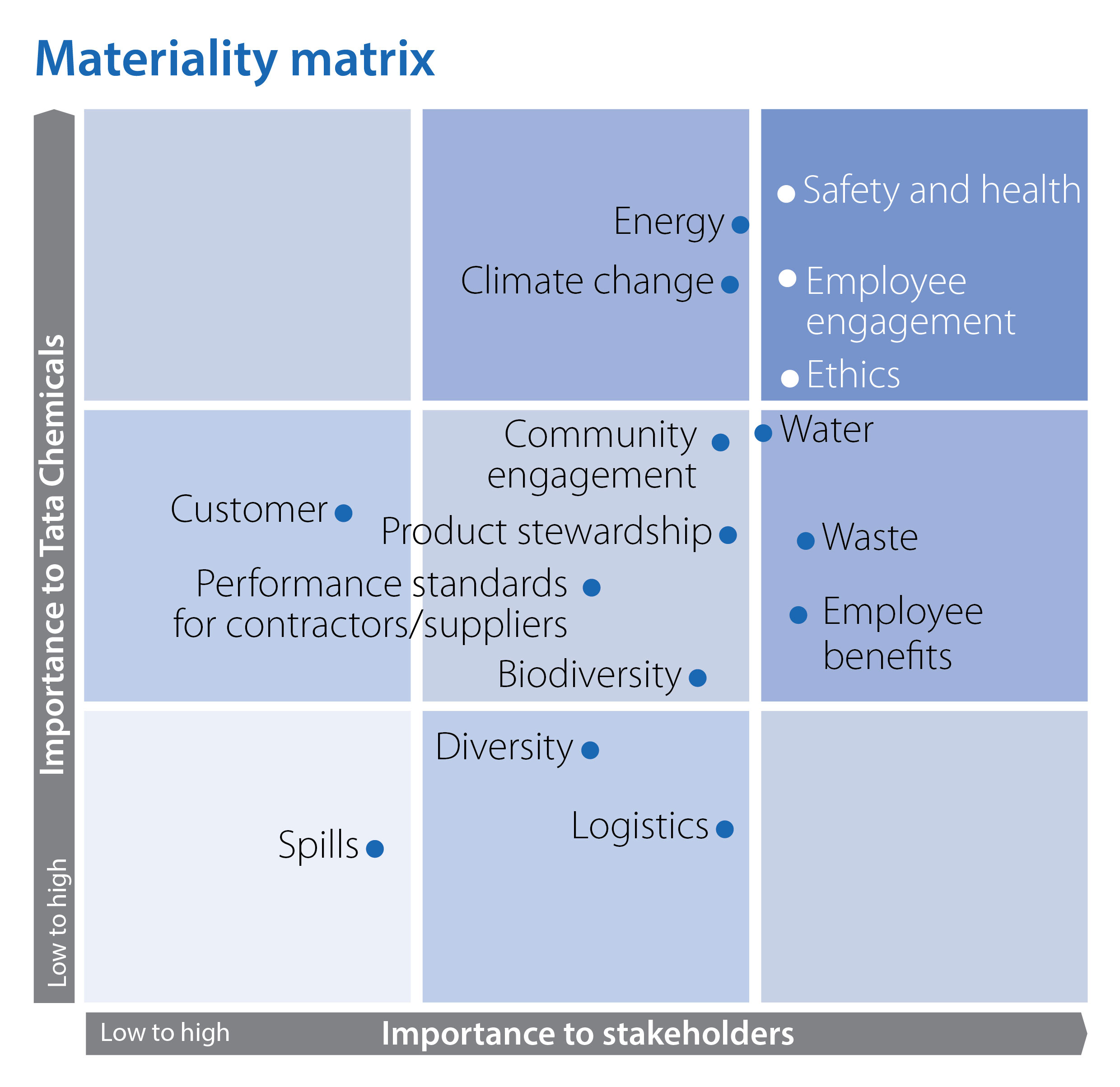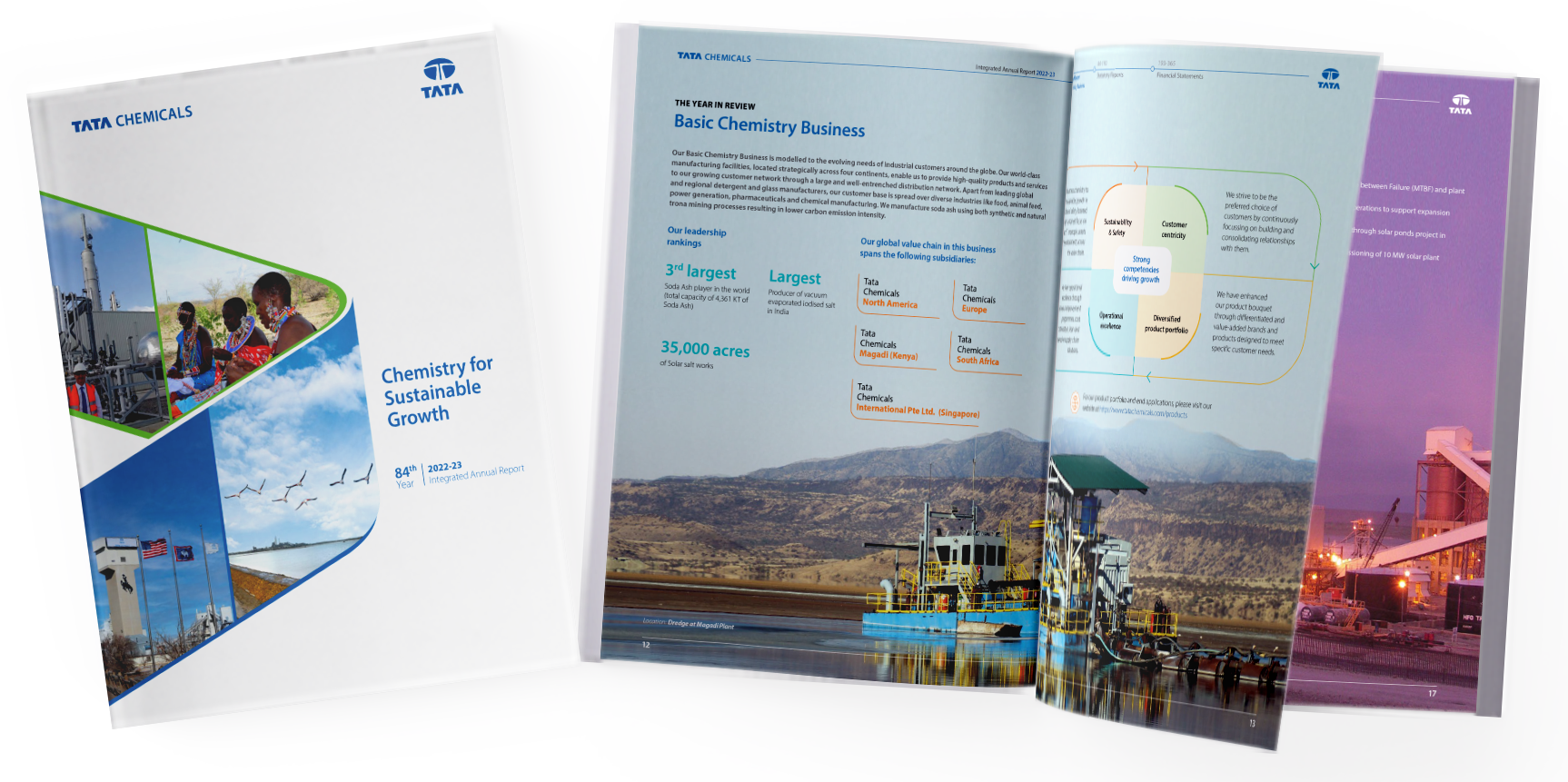Materiality mapping
Tata Chemicals undertakes a detailed materiality study every four years to identify topics that impact the company and its stakeholders
Materiality can be defined as the threshold at which a topic or indicator becomes sufficiently important to an organisation or its stakeholder. The materiality principle, as defined in GRI's G4 Guidelines, is 'issues that have the potential to significantly affect sustainability performance'.
Materiality study, taken up in line with GRI guidelines on materiality, helps Tata Chemicals (TCL) to identify those opportunities and risks that are most important to the company and its stakeholders, including its impact on the economy, environment and society, which will merit focus in the company's sustainability report. Every four years,we take up an in-depth study on identifying material concerns, and informal methods are used to gauge material concerns for each year.
The steps involved in conducting a Materiality Assessment include perception mapping, stakeholder prioritisation, stakeholder engagement, and building & integrating the matrix.

TCL Materiality Matrix 2018-19






